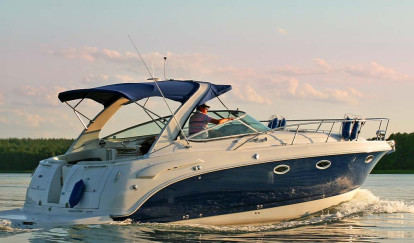
Share This Article
Running into a larger boat can cause significant damage for both parties. Even a small boat accident can result in surprisingly serious injuries. If you engage in recreational boating activities on Virginia's waters, you should know what to do in the event of a boat accident.
What To Do After a Boating Accident
A boat accident can happen when you least expect it. In 2021, 89 recreational boat accidents resulted in 47 people injured, 19 fatalities, and over $600,000 in property damage in Virginia.
Most of these accidents occur in the summer months, but a boat accident can strike at any moment. A pleasant afternoon out on a boat can end in disaster when you least expect it, resulting in loss of life and property. Preparing for a boating accident before embarking on any boat trips is crucial. This includes having enough life jackets for everyone on board and having a designated boat captain who refrains from alcohol and other intoxicants and follows all applicable laws and rules.
You should be aware that environmental factors like heavy rain can make accidents more likely. Controlled factors can also contribute to accidents, such as a boat being operated by someone under the influence of drugs or alcohol, running the boat at high speeds, or disregarding channel markers.
However, knowing what to do after a boat accident can help you save lives and reclaim damages. This is especially true if passengers suffer from severe injuries, including traumatic brain injuries. Below is an outline of what to do in the case of a boat accident.
Get Medical Attention Immediately
The first thing you should do after everyone is accounted for, wearing life vests, and safe is to seek out immediate medical attention for anyone who needs it. If your injuries are minor, you should still get a medical checkup. However, it may make sense to do other things first, like collecting contact information from the other party.
You should seek medical attention even if you feel fine and do not display any immediate injuries. Some injuries may be apparent to a medical examiner but stay dormant for days, weeks, or even months. If your injury shows up later, it is difficult to prove it was a result of your boat accident.
The other party may even claim your injury was part of a pre-existing condition. If you cannot prove the injuries are related to the accident, it will be difficult to recover damages to cover the cost of those injuries.
Document Everything
You should document everything related to your boat accident as soon as possible. You should include details like:
- The type of boat operated by the other party
- Whether the boat you were on had life jackets
- Any property damage you suffered
- Any physical injuries you suffered
- Whether the other boat operator appeared intoxicated
- The speed you estimate the other boat to have been traveling, along with your boat's speed (try your best to estimate with high accuracy for speed)
- The date and time of the accident
- Any other relevant details
It is best to take pictures immediately after the accident before the boats have moved. This can be crucial for an accurate investigation.
Get Information
You will want to gather information from witnesses and the people on the other boat as soon as possible. You should try to get the full name and details of:
- The other boat's operator
- The other boat's owner
- Any witnesses, as well as their opinion of what happened
Quickly obtaining this information can help your investigation later if you choose to pursue legal avenues.
Contact Law Enforcement If Necessary
If a person disappears or dies during a boating accident on Virginia's waters, you must promptly notify the Department of Wildlife Resources (DWR) in Richmond, Virginia, or the most accessible Virginia Conservation Police officer.
If you need to contact law enforcement about an accident, contact your Virginia county or city law enforcement group, the sheriff's office, Conservation Police, or the DWR dispatcher at 911 or 800-237-5712.
File an Accident Report
In some situations, contacting your local law enforcement agency may be necessary. This is particularly true in the following scenarios outlined by Virginia's Department of Wildlife Resources.
You should file a report within the following time frame:
- Within 10 days, if the property damage exceeds $2,000
- Within 10 days, if it was previously unnecessary to file a report, but a report later becomes necessary
- Within 48 hours, if someone disappears
- Within 48 hours, if someone is injured to the point they cannot perform everyday activities
- Within 48 hours, if a fatality occurs within 24 hours of the incident
You must file a formal, written boating accident report with Virginia's DWR in each of these situations. You may not be required to file an accident report for minor accidents that do not result in physical injuries or excess property damage.
File a Boat Accident Injury Claim
Boat accidents are a type of personal injury claim, similar to a car accident. If you are seeking compensation for your damages, there are certain things you must do. To be eligible for compensation requires you to identify the parties responsible for the accident, discover and use evidence to prove the parties' responsibility, and calculate the damages these parties owe you.
Following the guidelines here is an excellent start if you are wondering how to prove fault in a boat accident. If you have received a timely medical checkup, documented all relevant occurrences, collected the necessary information, and followed the other tips suggested here, your claim will stand a stronger chance of success. Sometimes it can be difficult to chase down these details months or years after a boating accident.
Call the Right Boat Accident Lawyer Today
If you or a loved one have been harmed in a boating accident on Virginia's waters, you should speak with a local boat accident attorney about your options. You have rights, and by speaking with an experienced boat accident legal professional, you can determine your best course of action.
Contact the Commonwealth Law Group today to have your questions answered in a free consultation.
If you have been injured at work or through the negligence of another individual or entity, contact us at (804) 999-9999 or or use the form below to connect with our legal team. We will fight to get you the justice you deserve.
